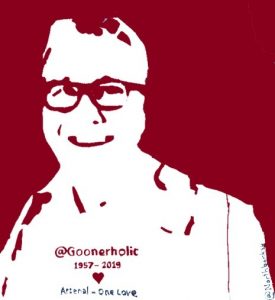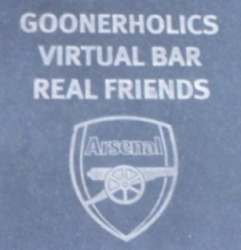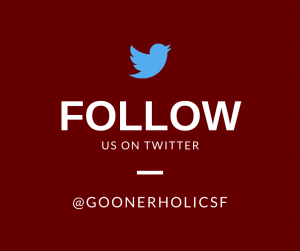
Following on from my first piece in this series (LINK HERE), in which I tried to place the modern game of football in a wider societal context, I am now turning my attention to the way that football fans engage with each other. This takes place within the context outlined last time, and I hope may also shed some light on the lack of impact fans have had so far on officiating.
Where Is The Resistance?
To me, it is utterly baffling that I have never seen any kind of committed, united approach from football fans to improvement in refereeing standards. Even upon searching for what organisations or campaigns are pushing for reform I can find… oh, so little. So depressingly, heart-achingly little that a simple snap judgement would be that fans just don’t care. Certainly, it would be hard to argue that fans are interested in seeing improvement in refereeing standards if one were only allowed to look at what actions fans have taken to improve them.
I have been able to find a few petitions to parliament on various refereeing issues (all relating to transparency and improving standards) none of which have garnered more than 30 signatures. There are many petitions on Change.org that have fared little better.
There are individual fans’ groups and supporters’ clubs that have published articles and opinions, or drafted statements asking for better refereeing. I can find no body that has collated these, nor any sign that any of these groups has joined with any other groups to call for change. If such a body exists, its efforts have little online presence, drastically diminishing their value.
There are, however, a laughable number of links to articles about how the dire and still-declining standard of officiating has to be improved, articles which seem to have been produced consistently for the last twenty years!
So, when the internet is full of debate (and vitriol) about how often the referees get it wrong, why is it that there is no effective organisation of fans’ voices, or any sustained pressure to improve the situation?
Fight For Your Right (To Squabble Amongst Yourselves)
The first answer to this question is the very obvious one; that fans are too united by their enmity for each other to band together in a common cause.
Football media and social media is now set up to ‘divide and conquer’. People are funnelled towards extreme viewpoints, encouraged to identify with certain groups they feel they belong to and to espouse the views and rights of those groups above those of others. As I mentioned in the last article, this socially corrosive effect can be seen in more important arenas than football, as the rise of misogyny and extremist politics amply demonstrate.
However, we should be under no illusions that the mechanisms used to pit football fans against each other are any different from those used to radicalise people into racism, sexism or any other form of discrimination. Although, having a blanket opinion that all Man Utd fans are entitled, all Spurs fans are deluded, or all Arsenal fans are whingers is socially permissible in mainstream society in the way that catch-all opinions about people grouped by race, sex or religion are not.
Even though most of us like to think of ourselves as unbiased and un-bigoted (much like referees do) many of us now have regular interactions in a system designed to push us away from this stance and towards a fixed viewpoint. Do we take enough account of this and intermittently remember to ask difficult questions of ourselves? Is it okay to dismiss, or summarily argue against, the opinion of someone just because they support a different team to us? Is it helpful to us, or anyone else? Would we behave the same way if we were sitting at a table with the people we were engaging with, accountable in a personal sense for our actions?
Perhaps most importantly, as football fans, do we consider seriously enough the influences we are subject to and how they shape our discourse and the ways we interact?
I suppose these are questions for individuals; just a few of many such questions in a society which allows big players to take actions that negatively impact huge groups of people whilst simultaneously claiming it is up to the individuals in those groups to resist their sway.
In as far as football officials go, the focus on individual decisions made by referees, rather than a broader, thematic look at the recurring problems, guarantees that in-fighting will trump the common good.
For any decision that goes against a team, opposition fans will far outnumber those of the wronged team.
Since we have former referees and pundits keen to justify any refereeing decision, there is (for those who need it) more than enough ‘expert’ opinion for fans of other clubs to feel justified in arguing the correctness of a decision that they would rail against if it had been given against their own team.
Other fans do not even need the veneer of righteousness provided by the agreement of their preferred football media outlets to argue for any decision that goes against their rivals and to lambast fans of those clubs who dare to claim the referee is at fault; they have been radicalised too far and are swept along by the social proofing of what all the other online fans of their clubs are doing; there is more than enough noise to silence any lingering voice which asks “hang on, is that really a good call?”
Does that even matter if it would detract from the strength of the point you are virulently arguing to a stranger you’ll never meet?
These opinions derived from which club we support rather than what we impartially judge to have happened on a football pitch, and the way we then prosecute them, are hugely unhelpful, serving as they do to maintain the status quo and drowning out calls for better standards – calls which we all immediately throw our voices behind when, in the arbitrary game of musical chairs that refereeing has become, the music stops when a decision is erroneously made against our team…
Except, now the boot is on the other foot and the fans of all the other clubs band together to shout us down. Oh, our short-sightedness!
Will we learn for next time?
Will we sausages!
We’ll just start again at the beginning of the cycle, happy to have our carefully cultivated addiction to emotional drama sated as we play it out over and over.
For a cynic or a Machiavellian, it’s a beautiful system to see in action. Divided we stand, divided we fall. And we have fallen so far.
Although we are all partisan in the way we watch football, there are times when, for the good of the game and also for all of us involved with it, we must unite. We must drop our tribal identity as fans of individual teams and instead pick up our tribal identity as ‘football fans’. In a system that seeks to divide our loyalties and play us off into warring factions, this adoption of a shared identity perhaps offers one glimmer of hope, an insight into how we might redefine ourselves sufficiently to stop the in-fighting and work together for change.
If We Want Victory… Could We Give Harmony A Chance?
For me, personally, a good rule of thumb to help me fight the pull towards imbalance, or the simple urge to revel in a bad decision which hurts a rival team rather than disagree with it on principle, is to ask how I would feel about the decision if it went against my team? If I would think it were wrong going against my team then the only way I am ever going to see the system that keeps churning out these errors overhauled and replaced by a better one is by standing shoulder to shoulder with fans of other clubs when it goes against them. And yes, that includes Spurs fans… whom, I should note, as a group, are one I unfairly malign. Which is weird, given that almost every individual Spurs fan I know is a thoroughly decent person, and the percentage I could deem otherwise is no higher than it would be in any other group. Then again, almost all Gooners dislike Spurs fans. We are supposed to. And I am a Gooner. I am part of that ‘we’ that identifies against Spurs. And there it is… it is so easy justify what a non-sports fan could just as easily regard as pure, baseless prejudice.
Was it ever this way? TTG’s fantastic three part series on that rivalry (LINK TO PART 1 HERE), soon to be serialised in The Gooner fanzine, suggests not. So why is it that fans these days are united by what they stand against rather than what they stand for?
There have been studies that show people are less likely to help a person who falls over in the street if they are wearing a rival team’s jersey. Think about that. However harmlessly we view them, if our prejudices genuinely spill over into real-life situations, preventing us from stepping in to aid a fellow human being in distress, then what effect do they have in impersonal, online spaces where a culture of belligerence and personal abuse is prevalent? And is it any wonder we can’t all get on the same page?
You Can’t Handle The Truth!
A second answer to my question is that it is the effect, once again, of fake news.
After a recent match where the referee made some questionable decisions, a sensible, thoughtful and intelligent friend of mine sent me a link to a post that gave false statistics regarding the number of fouls committed by each team, designed to make it look as though the referee was even more impartial than the true stats would have provided evidence for.
There will be plenty of people who saw that post and believed those stats, using them to back a false narrative in a way that detracted from an impartial appraisal of the actual events on the pitch. The general air of misinformation, and the abdication of all responsibility to engage in a serious and important debate in good faith is, frankly, alarming.
Accusing someone of having ‘an agenda’ has become a trite way of dismissing dissent or disagreement. Often it is simply used to railroad discussion by those who wish to shut down, rather than engage with, a view contrary to their own (or, at least as often, a view that on the surface appears contrary to their own, or a view that comes from a source outside of a group they identify with – usually, from fans of other teams).
Unfortunately, it is far easier to play the agenda card and slander someone as some sort of partisan conspiracy theorist than it should be, because there is genuinely a lot of this stuff flying around and people are just too saturated and swamped with information to sift the fact from the fiction, the zealots from the sceptics, the ones who want answers from the ones who already have all their answers and are not open to changing their minds.
We get worn down by such a vast swell of information and opinion that we cease to process any of it and so we rely on a few sources of information that affirm the viewpoints we already held, rarely noticing if they follow the standard trend of slowly becoming more extreme and entrenched over time.
And this is not because we are stupid, or idiotic, or because we don’t care.
It is because the water we swim in is too dirty for us to purify it as individuals. Without a much wider concerted effort, it is almost impossible to get out of this fishbowl. It is far easier and quicker just to make snap decisions that affirm what we want to believe, just like my friend did when he forwarded that link. And just as I have doubtless done many times myself and will continue to do in the future. I certainly do it regarding referees! Hell, I’ve probably done it in this article, so please feel free to point out anywhere you think that is the case.
None of us are immune, but recognising this is a useful understanding in itself; it invites us to question ourselves more and listen to others more thoughtfully. Perhaps ironically, perhaps simply logically, we need to be doing exactly the things that I would advocate for the referees: less assuming that we know best, welcoming criticism, and collaborating more to work towards outcomes that benefit us all.
No Bird Pecks Like The Ostrich
In a future article I am going to look at the area of subconscious bias in referees. For now, as I wish to make a point about how we, as fans, respond to other fans who enquire about the effect this has, I will simply say that subconscious bias is a proven phenomenon, universally accepted by all psychology professionals. A vast number of organisations, from universities to hospitals, police forces and countless others, have specific training and guidelines to counteract this unavoidable consequence of how the human brain processes information.
Yet, as soon as a fan dares to suggest that there may be some subconscious bias at play in the decisions of a group of white men from the Northwest of England, there will be so many more who will pop up to call them conspiracy theorists and make pejorative comments.
Is this a rational and scientific approach?
No. Indisputably, it is not.
In other walks of life, would these naysayers refute a huge and professionally uncontested body of evidence in favour of their own opinions? I doubt it. I cannot imagine these same people – the ones who refuse to put aside their entrenched belief in referees’ fairness and instead ask what the evidence shows – apply a similar head-in-sand approach when discussing climate change, brain surgery, or the effects of owning a pet on a person’s propensity towards clinical depression.
Sure, there are some flat-earthers out there. But refusing to ask rigorous questions of how unconscious bias affects referees because of a belief that the referees are trying their best to be impartial is far closer to a flat-earther’s stance than to a scientific one.
Referees may well be trying their very best to be impartial. But asking questions about whether they exhibit subconscious bias (the clue is in the name) should not be cause for being dismissed like you’ve just asserted that the problem with referees is that they are all part of a cult that worships the Loch Ness monster.
Strangely though, there are keenly intelligent and analytical individuals who wear as a badge of honour their refusal to ask a single question about what the evidence shows about referees’ performances.
All of which again touches on why honest, good faith debate and discussion is more vital than ever before, and the attempts to pre-emptively win an argument instead of simply to engage in a conversation are having such a deleterious effect.
Making Your Voice Heard – Time For A Referendum?
It is appropriate then to ask, what is the proper forum for these conversations? Is there a scenario whereby fans can exert consistent pressure to improve standards in refereeing? If so, what does that look like and what needs to be done to get us there?
Are we, as fans, doing all we can to bring about the changes we wish to see?
In the current atmosphere, there is general dissatisfaction with referees amongst most fans and clubs, but no effective, co-ordinated efforts to improve the situation. The first line of defence against any such action is, as mentioned, to point the finger at any fan or club who make a complaint as being in some way out of order, a crackpot with an agenda, or a cheat (logic is not necessary for this style of ‘refutation’). And then to descend into petty in-fighting whilst those perpetuating this system sit back and watch. Or, more likely, ignore the debate completely since it won’t affect their system, or their bottom line, in the slightest.
Are we happy for this to continue?
Four PL clubs released statements last year questioning the overall standards of the referees.
Did this generate curiosity, debate and initiatives to acquire and examine more data?
No.
Were all the clubs uniformly lambasted in the media and online?
Yes.
Did anything change?
It did not.
If you were tasked with designing a system where refs could act with impunity, arbitrarily administering the rules as they felt like it to the benefit of vast and wealthy entities, whilst the people negatively impacted by their poor decisions argued each other into submission whenever anyone suggested a change… well, then you would not have a difficult task. Perpetuating the system we have would rank pretty high on your list of options.
It has been chosen.
Is it not time to choose again?
If you’re reading this brilliant post on the ‘Home Screen’ just hit the word ‘Drinks’ at the foot of the article to read and join discussion of all things Arsenal (and some other stuff) stimulated by this article and responses from regular denizens of this virtual bar. If you’ve accessed this post directly, simply scroll down to see the thoughts of fellow Gooners and please join the discussion.









An excellent follow-up to your first piece, Dino. I have come across at least one academic multi-sport study, football was one of the sports, that shows a statistcal tendancy of officials to sligbtly favour home teams. So you subconscious bias point is well made. Confirmation bias, disregarding evidence that might negate tbeir views, has reached epidemic proportions among fans and media, for the reasons you outline.
Cheers Ned.
I’d just like to offer my fullest thanks to everyone who responded in the drinks to the last article. There were so many great points raised, and the level of the discourse was fantastic. I read every word carefully and have taken all your thoughts on board.
Much obliged. You lot are the mutts.
Please do the same this time around. And if any irregular posters or regular lurkers are inspired to have your say, then you’re most welcome and I would like to hear from you, as I’m sure would the rest of the regulars.
Drinks are on me…
Hello GSD, you’ve hit the nail on the head in the title.
I am probably already guilty of a commitment / consistency bias in that I’ve already mentioned fan action in answer to the previous post, however I do believe it is the
most likely of ways to get reform and you have outlined some of the issues very well.
How to get the fans to unite? It is made more problematic by the nation state clubs
as certainly I find it difficult to have common ground with fans who can stomach a
murderous kleptocracy like Man City or Newcastle supporters now do. But that is in
essence what we will need to do – I suppose the easiest route would be to build
issue type partnerships with other major fan groups at teams like Liverpool or Man Utd
first and then try to spread to other large fan group. By issue type partnerships I mean
first focus on issues where we can mostly all come together – e.g. ticket pricing, the super league, safe standing, rescheduling and try to mobilize for joint action – and then try to
expand and build a consensus on things like PGMOL. Of course the powers that be will try to ignore such a threat but you need to persevere, keep building the numbers, the voice, the feet on the ground until you can reach a tipping point. Sounds a bit revolutionary now
that I read it back!
Reading and writing made me think of this piece for some reason ,
haven’t listened to it for about 20 years now!
More excellent work, GSD !
First thing I have to admit to is that when Tottenham have a goal wiped off by my pet hate, VAR, I suddenly find myself laughing out loud and rejoicing in the existence of the remote, crosshairs drawing muppets, 200!miles away from the game. So there is absolutely nothing unconscious about my bias – so that might be one hurdle cleared. Or not 😳
But you are probably right in that unity will strengthen the fans’ hand. One fly in the ointment seems to be with the nation state clubs that Matt mentioned. Will Newcastle fans, for example, want to change the standard of refereeing that won them a recent game against us – especially as their owners pay for jollies for those same referees to take games in their league back in Saudi. The Geordie fans might be happy to benefit from dodgy decisions if it encourages their owners to carry on investing in the quest for a title.
Similarly City fans regularly benefit from bad decisions and rarely to never lose by them. They may also be a lost cause in a search for unanimity. But your point generally holds.
GSD,
Thankyou for another very detailed and important post .
I’ve considered the nature of football tribalism in some detail . When we beat the Totts in April my wife asked me to consider the feelings of my Spud-supporting grandson . My reaction was that if he was downcast he should support a better team .I had no sympathy whatsoever yet I love the lad to distraction and would take a bullet for him without hesitation. But would I want Tottenham to beat us – the hell I wouldn’t !
But there are moments when we transcend the rivalry – I mention the ‘ Rocky ‘ moment in the series on the rivalry with Tottenham . I remember the outpouring of genuine grief after Hillsborough and I’m old enough to remember the national horror after the Munich air crash and the sympathy for Manchester United ( imagine that !?) as they recovered to reach Wembley ( covered in David Peace’s new book – Munichs )
I also think we saw the force of common fan concern when the ESL project was mooted . But I find it hard to envisage fans finding enough common ground to tackle an issue like refereeing standards simply because not all clubs feel as victimised as we do . Refereeing decisions are not viewed uniformly in club football. We saw the Lampard debacle in the World Cup in South Africa and rose up as a nation but we can’t build that community of interest in club football. Voices of reason have to be neutral and who is neutral about football? It’s one of the most emotive and visceral things on the planet .
This hasn’t helped much but I think it does illustrate how tough it is to get consensus in football- which is the very point of your article !
A well thought out and challenging piece, GSD. I fear that I very much doubt that the most enthusiastic, regular match-going fans will fail to overcome their deep-seated tribal antipathies which have been built up and re-inforced over many seasons of tribal conformity or inculcated in formative years by a football supporting family (the Jesuits were correct). While it is possible to decondition deep-seated prejudices, it requires hours of hard work and consistent application. I can’t see that happening in this context. PGMOL, Sky and TNT can laugh all the way to the bank.
The Football Supporters Association should be a natural home for such a cause as improving refereeing, but it looks to be too close to the PL and FA establishment.
Is the anti-racism-in-football group, Kick It Out, a model for creating an activist single-issue organisation? Does anyone know how it started?
https://www.arsenal.com/news/mikel-arteta-signs-new-arsenal-contract
Great news!
Although apparently there are Arsenal fans who want him replaced, which is another triumph of the system over reason in my opinion.
Personally, I can’t think of better news to get from the club than Mikel’s new contract!
Good news, indeed, GSD. There is a job to be finished.
Arteta’s contract extension is THE best news.
Thanks GSD for this terrific second piece of your magnum opus. Speaking as one with absolutely no subconscious bias whatsoever I can say you rocked this one. 😀
Another fine, well written piece Dino, congratulations!
Oh and by the way, Abu Dhabi are in court on Monday.
https://x.com/jamesolley/status/1823275481933763055?s=61&t=cVFjCyGkt4y-Ne45LtfqkQ
ESPN also reports that Arteta’s contract extension significantly increases his existing £9 million-a-year salary.
https://www.espn.com/soccer/story/_/id/41228635/mikel-arteta-signs-three-year-arsenal-contract-extension
Effectively, Arteta has signed a 2 year extension. So next summer we’re into kicking off negotiations again.
CER @15, precisely that. If you look at his playing career, he was a rolling stone. I suspect he won’t be here much longer than 2007. He will achieve his ambitions for the Arsenal and then he’ll be off to a new challenge. Enjoy him and his team while you can.
I’m not sure I agree with CER and Baff on the contract. (Although I definitely agree that we should enjoy this period while we can – be it 5 years or 15 years, one day we’ll be shit again and look back on this team with serious envy!)
He’s signed a contract when he had less than a year left on the current one. If he signed another on a similar timescale, I see no reason why we would need to start new negotiations within the next 18 months, especially as the relationship between all parties is very strong.
Given the ever more rapid turnover in football managers (did I see a stat that Arteta is about 5th longest serving manager in the Football League?) I think we will see more and more shorter term contracts. If everything is good in a couple of years, then it won’t be hard to negotiate a new deal.
Arteta has high standards of himself. If he wins trophies and is successful during this contract, it would not surprise me if he signs another. He’s too humble and driven to want a longer contract when the focus needs to be on the here and now. But onc he’s finally got this team good enough to win, I think he will want to hang around to reap the victories of our competitive years.
I reckon we might have about 5/6 more years, if both he and the club continue to improve and be happy with the fit. I don’t think he’s in any hurry to draw this project to a close and start a new one. I do think he’ll be a good judge of when it has wound down and it is tme for a new cycle. I can’t see him hanging about longer than he should but I don’t think he’ll leave until he’s seen the job through.
Right now, his kids and family are also settled and happy in London. I don’t think the length of his contract is anything to worry about. Loads of managers sign longer contracts and then don’t see them through.
I’d much rather someone with the wisdom to know that things change fast in football, and signing a three year contract with the option of signing a new one if things are still going well is a good sign of sense and integrity, from the manager and the board.
I love Arteta, but I am also starting to revel in how increasingly well run the club is. It makes such a difference.
I sincerely hope Arteta is here beyond 2027, but that will depend on all parties being happy with the continuing state of play.
I don’t mind the 2 year extension at all. If Arteta and the club are achieving their ambitions why wouldn’t he stay – and the 2+ years timescale keeps everyone on their toes to make as sure as possible that that is happening.
How long Arteta stays will probably be determined by how much silverware this team wins (which may turn on City’s fate) and whether he has the appetite to rebuild it when the time for that comes. Dino is right that there is probably five or six peak years left in the current squad. A ten year-run (ie, one more extension to the current extension) would take him to near the end of that.
How refreshing to see the PGMOL laser-focused on the critical issues—whether there is so much white in our strip that it might clash with the neighbours’. Apparently, there is, so we will have to play in our black away strip on Sunday, even though it breaks the tradition of one of the game’s great derbies that we play in red. At least we can now rest assured that the officials won’t get confused and make any erroneous decisions.
Re: Ned @20. If only it were so.
Hey, y’all. The interdull is over. Shouldn’t we be stressing about our captain’s injury?
Re: ecg. All of us privately and in our oen special way so far. Whaddaya want, group stress? There’s enough time for that just yet., I’m pretty sure.
I had been thinking all week about who MA will select for the NLD and then I realized I’d completely forgotten we signed Sterling 😂
>>>>>>>>>>>>>>>>>>>>>>>>>